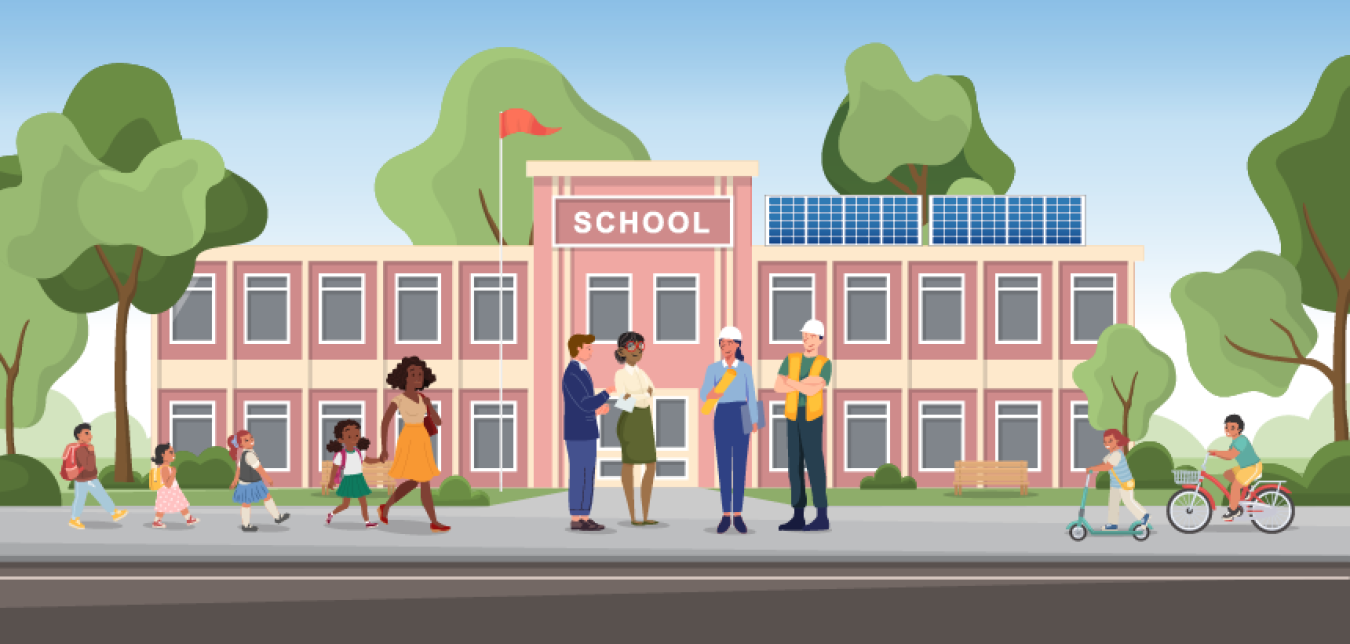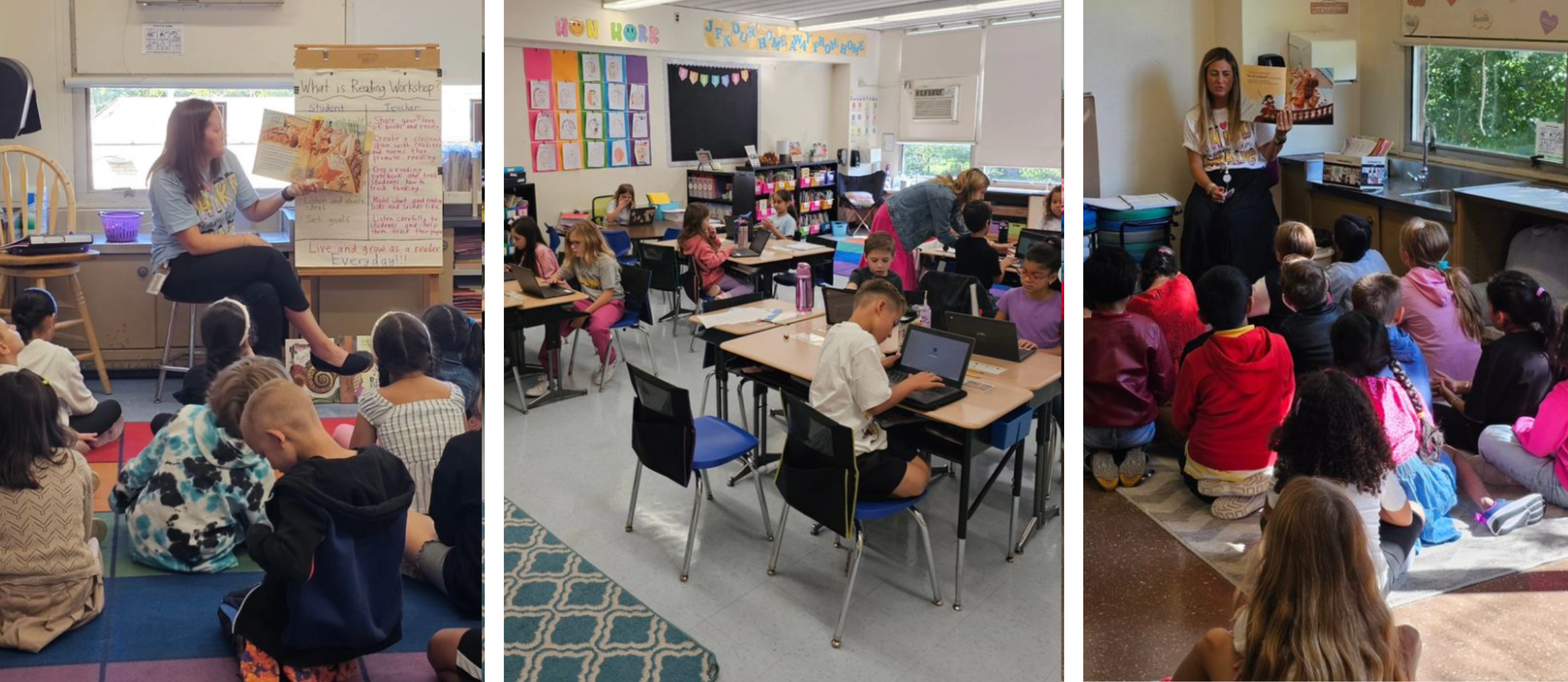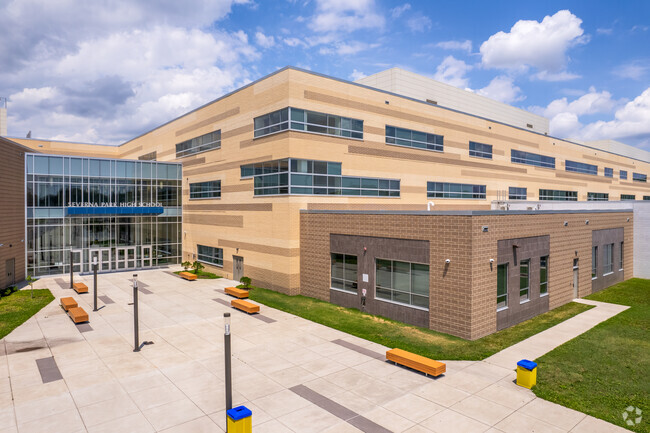Why It's Crucial to Rally Together to Save Temecula Schools
Why It's Crucial to Rally Together to Save Temecula Schools
Blog Article
Understanding the Relevance of Institutions in Youngster Advancement and Community Growth
Schools function as essential institutions for youngster growth and community development, providing environments where academic accomplishments are enhanced by the cultivation of social abilities and direct exposure to diverse point of views. These academic setups not only advertise vital reasoning and reliable communication yet likewise foster compassion via collaborative jobs. Schools' involvement with local areas via service-learning efforts enhances the bond in between family members and instructional organizations. This symbiotic relationship highlights the importance of institutions in supporting energetic citizenship and lifelong understanding routines. What are the specific systems by which these organizations accomplish such extensive impacts?
Academic Success
Academic success functions as a cornerstone of child development, giving the structure upon which future understanding and success are developed. Institutions play a critical role in fostering this scholastic development, supplying organized environments where youngsters can obtain vital knowledge and cognitive abilities. Standardized curricula ensure that pupils gain efficiency in core topics such as mathematics, science, and language arts, which are essential for both higher education and professional possibilities.
Along with giving essential academic skills, institutions additionally cultivate critical thinking, analytical capacities, and intellectual interest. These cognitive expertises are vital for browsing complicated real-world scenarios and adapting to the ever-evolving demands of the contemporary workplace. Teachers, as facilitators of discovering, utilize varied pedagogical approaches to deal with different knowing designs, thereby optimizing private pupil potential.
Furthermore, academic success is closely connected to self-worth and motivation. Youngsters who experience academic accomplishments are most likely to create a positive self-concept and a lifelong interest for learning. Institutions likewise use numerous sources, such as collections and modern technology, which better enhance the educational experience and prepare pupils for a technologically innovative culture.
Social Ability Growth
Beyond scholastic success, the role of institutions in social ability development is indispensable. Schools serve as a main location for youngsters to discover and exercise crucial social abilities such as collaboration, dispute, and communication resolution. In the organized atmosphere of a classroom, trainees communicate with peers, teachers, and various other institution staff, offering various opportunities to create these essential capabilities.
Reliable social skill development in colleges is promoted with group tasks, joint projects, and extracurricular programs. These communications assist students recognize social norms, build compassion, and foster a sense of neighborhood. For instance, team jobs teach students just how to collaborate in the direction of an usual goal, pay attention to various perspectives, and browse disagreements constructively.

The farming of social abilities during institution years lays a foundation for future personal and expert partnerships. Save Temecula Schools. As students develop, the ability to successfully collaborate and connect comes to be increasingly important, emphasizing the institution's critical role in holistic child development
Exposure to Diversity
Direct exposure to diversity in schools is basic to promoting a comprehensive way of thinking and expanding students' viewpoints. Schools act as a microcosm of the broader society, and experiencing diverse societies, languages, and socioeconomic backgrounds within this environment equips students with vital skills for navigating a progressively globalized world. This exposure motivates compassion, minimizes prejudices, and promotes mutual respect amongst peers.
Research study shows that students who interact with peers from varied backgrounds show much better problem-solving abilities and creative thinking. This understanding of diversity prepares trainees for future offices that worth modern proficiency - Save Temecula Schools.

Neighborhood Interaction
The advantages of varied class prolong past the school walls, fostering a strong feeling of area involvement among students. By communicating with peers from various cultural, socioeconomic, and ethnic backgrounds, pupils obtain a wider perspective and an appreciation for diversity. This exposure encourages them to end up being energetic people that are eager to contribute positively to their neighborhoods.
Institutions that highlight neighborhood engagement commonly include service-learning jobs, which enable students to resolve real-world issues while using academic skills. These jobs not just improve trainees' understanding of their coursework but also impart a feeling of obligation and empathy. Furthermore, partnerships in between institutions and local companies give students with chances to take part in area Our site events, further strengthening their role as aggressive neighborhood members.
Furthermore, parental and area participation in schools enhances the bond between educational organizations and the areas they offer. Through these initiatives, institutions play a crucial role in nurturing community involvement and fostering societal growth.
Lifelong Knowing Habits
Developing long-lasting understanding behaviors is crucial for a kid's constant growth and versatility in an ever-changing globe. Institutions play a critical duty in instilling these practices by developing an environment that promotes inquisitiveness, important thinking, and a love for expertise. With varied educational programs and after-school activities, educators urge pupils to discover numerous topics, evaluate information seriously, and apply their learning to real-world circumstances.

In addition, schools supply a structured environment where kids can create self-control and time management skills, both of which are vital for constant knowing. By stressing the importance of setting goals, assessing progress, and adapting methods, instructional institutions prepare trainees to browse the intricacies of grown-up life, guaranteeing they remain lifelong students and contributors to society.
Final Thought
In conclusion, colleges are necessary in promoting child growth and neighborhood growth by providing settings favorable to academic success, social ability development, and direct exposure to diversity. Ultimately, colleges cultivate long-lasting discovering habits, outfitting people with the required understanding and skills to add positively to culture.
In the structured environment of a classroom, students connect with peers, discover this instructors, and various other school personnel, supplying various possibilities to develop these important abilities.
In essence, direct exposure to diversity within institutions not just improves individual trainees yet also enhances the Clicking Here social textile of the area as a whole.
The advantages of varied class extend beyond the institution walls, cultivating a strong feeling of neighborhood engagement amongst trainees.Schools that highlight neighborhood involvement frequently include service-learning jobs, which permit pupils to address real-world problems while applying academic skills. Collaborations in between schools and local organizations supply trainees with possibilities to get involved in area occasions, better strengthening their duty as aggressive community members.
Report this page